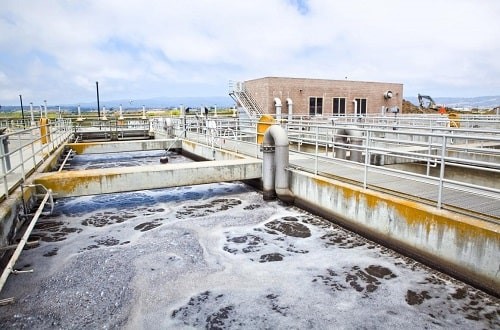More than a third of water workers in the UK have been verbally abused at work by members of the public in the last 12 months, with just over half attributing the rise in abuse to reports of sewage being dumped, according to a recent survey carried out by the GMB union.
News
Water workers abused and assaulted as public anger about sewage leaks rises: GMB
The union surveyed almost 1,300 water workers and released its findings in early April. The survey revealed alleged incidents in which respondents said they had been deliberately splashed with sewage by members of the public, attacked with machetes and violently assaulted.
 Data from the Environment Agency showed a 54 per cent increase in the number of sewage spills last year, compared with 2022. Photograph: GMB union
Data from the Environment Agency showed a 54 per cent increase in the number of sewage spills last year, compared with 2022. Photograph: GMB union
The survey showed that 45 per cent of respondents believed the amount of verbal and physical abuse directed at them while carrying out their duties had increased in the last 12 months. More than a third (35 per cent) said they had been verbally abused by members of the public in the last year, with 52 per cent of respondents reporting that they believed public anger following reports in the media of sewage leaks had contributed to the rise in abuse.
Data released in late March by the Environment Agency showed a 54 per cent increase in the number of sewage spills last year, compared with 2022. While this was partly due to heavy rainfall in 2023, the Environment Agency noted that “heavy rainfall does not affect water companies’ responsibility to manage storm overflows in line with legal requirements”.
Almost two-thirds of respondents to the GMB’s survey claimed that the physical infrastructure of wastewater treatment works and the wider sewage network was not kept in a good enough condition to minimise sewage leaks.
Sewage spills have been widely reported in the media in recent months, with celebrities including Feargal Sharkey and Stephen Fry drawing attention to campaigns by groups such as River Action to reduce pollution.
Anonymous testimony collected by the GMB union showed examples of how public anger about the situation is being directed at water workers. One respondent claimed an employee had been “attacked with a machete”, while another had been “violently assaulted and was off work for weeks with a broken jaw”. In another alleged incident, drivers were “purposefully splashing staff with sewage”, according to the GMB. Such incidents had resulted in some water workers reporting that they felt unsafe working alone.
“No one should go to work and face abuse,” said GMB national officer Gary Carter. “GMB demands a zero tolerance approach to the abuse of water workers – and calls on water shareholders to fork out for the desperately needed infrastructure to stop record sewage spills.”
Thames Water, Yorkshire Water and Anglian Water declined to comment individually on the GMB survey’s findings, instead directing media enquiries to the Water UK trade association. A spokesperson for Water UK said: “Abuse of any kind towards our key workers in the water sector is absolutely unacceptable.
“Companies in England plan to triple investment to £10 billion to cut sewage spills by 40% by 2030, and the industry supports regulators having the powers they need to monitor progress and performance.”
NEWS

Employers urged to listen to staff when designing workplace wellbeing strategies
By Kerry Reals on 26 April 2024
Conversation is king when it comes to implementing effective workplace wellbeing strategies, a panel of experts told a recent conference organised and hosted by British Safety Council.

Climate change could expose 70 per cent of workers to health risks, warns UN
By Kerry Reals on 22 April 2024
More than 70 per cent of the global workforce could be exposed to serious health hazards because of climate change, and existing occupational health and safety legislation may not be sufficient to protect workers, according to a new report by the International Labour Organization (ILO).

Calls for wellbeing focus intensify as UK economic inactivity rate rises further
By Kerry Reals on 16 April 2024
The number of working-age people in the UK who are neither employed nor looking for a job rose again in the December to February period, prompting calls for more investment in training and a greater focus on the health and wellbeing of the nation.



